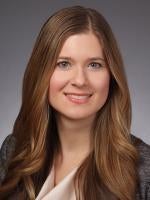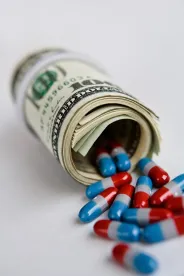On November 16, the City of Chicago passed an ordinance that will require pharmaceutical sales representatives to become licensed in order to promote prescription drugs to health care providers within city limits. The ordinance was passed unanimously, despite ardent objections from pharmaceutical manufacturers and industry organizations. While Mayor Rahm Emanuel states that the new licensing requirement is part of a larger series of efforts by the city to combat heroin and opioid addiction, industry representatives characterize the license as a harmful tax increase that does not effectively address the problem. This law will impose significant new burdens on any pharmaceutical manufacturer with sales representatives who call on health care providers in Chicago.
The ordinance, which will take effect on July 1, 2017, imposes a litany of new requirements on pharmaceutical representatives working in the city. Medical device representatives and distributors are not required to be licensed under the ordinance. In order to become initially licensed, applicants must complete a professional education course to be established by the Commissioner of Public Health. The fee for the initial application and each annual renewal will be $750. Then, to maintain the license, representatives must complete a minimum of five hours of continuing education every year.
In addition to the licensing requirement, pharmaceutical representatives will also be required to periodically report marketing data to city officials. Upon request or at given time intervals to be established by the Commissioner, representatives will have to disclose a list of the health care professionals that they contacted, along with:
-
The location and duration of the contact,
-
The pharmaceuticals that were promoted,
-
Whether they provided product samples, materials, or gifts to the health care professional, and the value of those items, and
-
Whether and how the health care professional was compensated in exchange for the contact with the pharmaceutical representative.[1]
Pharmaceutical representatives also are expressly prohibited from any deceptive or misleading promotion of a prescription drug, the use of any professional designation suggesting that the representative holds a license to practice medicine or other profession that he or she does not hold, and being present for any patient examination without the patient’s consent.
Any representative found in violation of the ordinance faces a fine between $1,000 and $3,000 per violation, with each day on which a violations persists constituting a separate offense.
When the ordinance takes effect, Chicago will become one of only two cities in the country – the other being the District of Columbia – to impose such requirements on pharmaceutical representatives. Moreover, the D.C. regulations are not as burdensome as Chicago’s. For example, the D.C. license does not require completion of a professional education course nor does it require reporting of marketing data to city officials. Additionally, the fee for the D.C. application is $175 compared to Chicago’s $750.
According to local press reports, a coalition of sixteen pharmaceutical companies, and organizations such as the Illinois Chamber of Commerce, the Illinois Manufacturer’s Association, the Epilepsy Foundation of Greater Chicago, and the Pharmaceutical Research and Manufacturers of America, wrote a letter to the City Council of Chicago expressing its concerns. The group stated that, “[t]hese proposed reporting requirements are unnecessary and duplicating, creating an unnecessary tax on one of the most important sectors of our economy.”
Whether the new license requirement will successfully aid in fighting opioid addiction in Chicago is uncertain; but, what is certain is that the requirement will place a significant burden on pharmaceutical manufacturers who should begin to take steps now in order to prepare themselves and their representatives for these new obligations. We will continue to monitor and report on implementing rules established by the Commissioner of Public Health and any other new developments leading up to the ordinance’s effective date.
[1] Section 4-6-310(g)(1)




 />i
/>i
